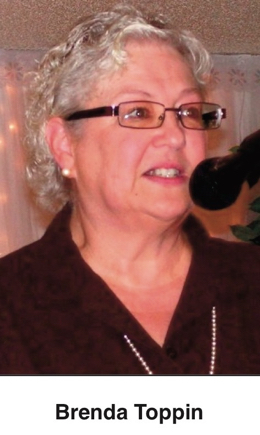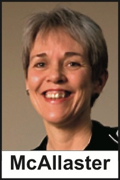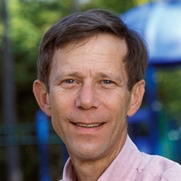Rascals case in brief
In the beginning, in 1989, more than 90 children at the Little Rascals Day Care Center in Edenton, North Carolina, accused a total of 20 adults with 429 instances of sexual abuse over a three-year period. It may have all begun with one parent’s complaint about punishment given her child.
Among the alleged perpetrators: the sheriff and mayor. But prosecutors would charge only Robin Byrum, Darlene Harris, Elizabeth “Betsy” Kelly, Robert “Bob” Kelly, Willard Scott Privott, Shelley Stone and Dawn Wilson – the Edenton 7.
Along with sodomy and beatings, allegations included a baby killed with a handgun, a child being hung upside down from a tree and being set on fire and countless other fantastic incidents involving spaceships, hot air balloons, pirate ships and trained sharks.
By the time prosecutors dropped the last charges in 1997, Little Rascals had become North Carolina’s longest and most costly criminal trial. Prosecutors kept defendants jailed in hopes at least one would turn against their supposed co-conspirators. Remarkably, none did. Another shameful record: Five defendants had to wait longer to face their accusers in court than anyone else in North Carolina history.
Between 1991 and 1997, Ofra Bikel produced three extraordinary episodes on the Little Rascals case for the PBS series “Frontline.” Although “Innocence Lost” did not deter prosecutors, it exposed their tactics and fostered nationwide skepticism and dismay.
With each passing year, the absurdity of the Little Rascals charges has become more obvious. But no admission of error has ever come from prosecutors, police, interviewers or parents. This site is devoted to the issues raised by this case.
On Facebook
Click for earlier Facebook posts archived on this site
Click to go to
Today’s random selection from the Little Rascals Day Care archives….
Click for earlier Facebook posts archived on this site
Click to go to
Today’s random selection from the Little Rascals Day Care archives….
Kids say the darndest things… eventually
 April 24, 2015
April 24, 2015
“As was made clear repeatedly upon testimony by experts, the very first reports of the children were the ones that would be most critical in determining whether sexual abuse had indeed occurred. Yet in the first interviews, the children said almost nothing of any interest with regard to sexual abuse, and the police officer who conducted these hearings destroyed all of her notes and all of her tapes of what happened before the case went to court. She was approached by several of the mothers initially because she had taken a short course in investigating cases of child abuse.
“Officer (Brenda) Toppin was crucial to the whole process because she was the one who escalated the case from a minor complaint by one parent into a case of massive sexual abuse of dozens of children by scores of day-care workers.”
– From “Understanding The Crucible: A Student Casebook to Issues, Sources, and Historical Documents” by Claudia Durst Johnson and Vernon Johnson (1998)
‘Give child’s testimony same weight’ as adult’s?
 Feb. 25, 2013
Feb. 25, 2013
“The 99 guilty verdicts against (Bob) Kelly appear to have set a benchmark for such cases: that youthful witnesses can have enough credibility to win convictions on their word alone.
“‘This validated child witness testimony,’ said Carolyn McAllaster, who teaches a child advocacy clinic at Duke University’s law school and trial practice at the University of North Carolina School of Law.
“‘I think the reason a lot of prosecutors hesitate to take these cases is they fear these children won’t be believed by juries,’ she said. ‘They should give a child’s testimony the same weight they would give an adult’s testimony. I think that children are very believable and that their testimony can be judged on its own merits.’ ”
– From “Rascals verdict affirms children’s credibility” in the Raleigh News & Observer (April 26, 1992)
McAllaster has gone on to become director of the AIDS Legal Project and a clinical professor of law at Duke.
Has she changed her mind about the credibility of child witnesses?
I asked her.
She hasn’t responded.
A national epidemic of supposed ‘remembering’
Aug. 30, 2013
“The Edenton case is not just a horrifying aberration. Adults across the country are suddenly ‘remembering’ that they were abused as children, and filing civil lawsuits and criminal charges against aged parents…
“Claims of long-ago child abuse, ‘blocked out’ from memory until now, have become a common defense tactic. Unscrupulous ‘therapists’ and sensationalist writers feed the frenzy.
“Anything goes against accused abusers, especially the right to a fair trial.”
– From an editorial in the Arkansas Times (Aug. 5, 1993)
Is Finkelhor now less panicked by day cares?

unh.edu
David Finkelhor
Feb. 3, 2016
“A new survey finds that adults at school, day care and organizations such as churches and scouting groups are less likely than relatives to abuse or mistreat children.
“In general, organizations that serve young people ‘do not look like particularly risky environments,’ said study co-author David Finkelhor, director of the University of New Hampshire’s Crimes Against Children Research Center. This contradicts perceptions by some people who ‘think these are magnets for molesters,’ he said.”
– From “Child Abuse at Daycare, Youth Groups Rarer Than Thought: Survey” by Randy Dotinga in the Northwest Indiana Times (Feb. 2)
Surprising to see Dr. Finkelhor dismiss the notion of day cares as “magnets for molesters,” given that his own overwrought “Nursery Crimes: Sexual Abuse in Day Care” (1988) was an influential text in spreading the moral panic.
How did he determine back then whether sexual abuse had actually occurred? “If at least one of the local investigating agencies had decided that abuse had occurred and that it had happened while the child was at a day-care facility….then we considered the case substantiated.” In other words, one supposed “red flag” sighting from Brenda Toppin was certification enough.
As recently as 2012, when I queried Dr. Finkelhor about his beliefs past and present, he denied being “an authority on the validity of claims” that he had laid out with such credulity in “Nursery Crimes.”
![]()











0 CommentsComment on Facebook